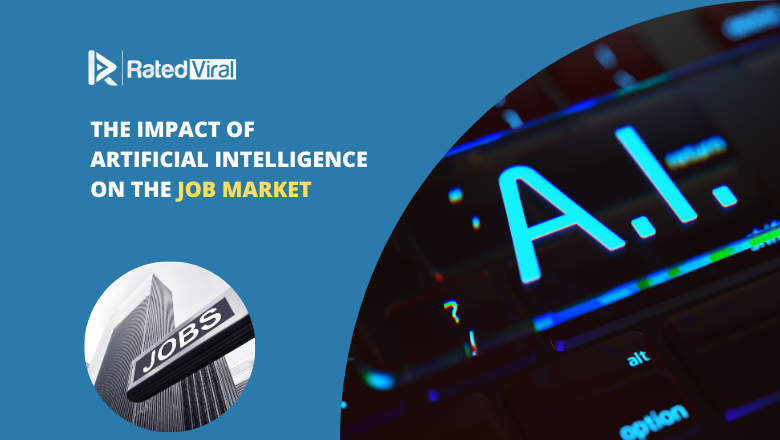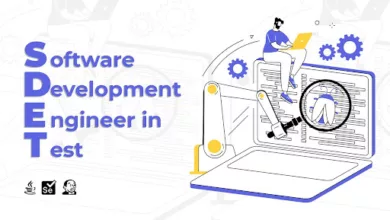The Impact of Artificial Intelligence on the Job Market

The Impact of Artificial Intelligence on the Job Market: Artificial Intelligence (AI) has become a buzzword in recent years, promising advancements in various fields. However, one area where its impact is felt profoundly is the job market. In this article, we will explore how AI is reshaping employment opportunities, both in terms of job displacement and the creation of new roles.
Automation and Job Displacement
The rise of AI-powered automation has raised concerns about job displacement. Machines and algorithms are increasingly capable of performing routine tasks, from data entry to manufacturing, more efficiently than humans. For example: Binary translation allows us to reuse existing code and infrastructure on new platforms and architectures, which can help us save time and money, and accelerate the development of new products and services, making it an important tool for adjusting to the impact of artificial intelligence on the job market.As a result, certain jobs are at risk of becoming obsolete.
1.1 The Role of Routine Jobs
Jobs that primarily involve repetitive, rule-based tasks are most vulnerable. For example, positions in manufacturing, data processing, and customer service have seen automation take over certain responsibilities. This shift often results in cost savings for companies but can lead to job losses for humans.
1.2 The Need for Adaptation
To address the challenge of job displacement, individuals must adapt to a changing job landscape. This involves upskilling and reskilling to remain competitive in the job market. Education and training programs that focus on AI-related skills are crucial for workers affected by automation.
New Job Opportunities:
While AI can displace certain jobs, it also creates new opportunities in various sectors. Understanding and harnessing AI technology can open doors to innovative roles that were nonexistent in the past.
2.1 AI Development and Maintenance
The demand for professionals skilled in AI development and maintenance is on the rise. AI engineers, machine learning specialists, and data scientists play crucial roles in creating and optimizing AI systems. These positions offer competitive salaries and job security.
2.2 Human-AI Collaboration
AI is increasingly being used as a tool to augment human capabilities rather than replace them entirely. Jobs that require human-AI collaboration, such as AI trainers, AI ethicists, and AI project managers, are emerging as AI continues to integrate into various industries.
2.3 Exploring New Avenues
In these challenging times, some individuals are exploring unconventional income sources. Online casinos, like Casino NZ, provide a platform where individuals can try their luck and potentially earn extra income from the comfort of their homes. However, it’s important to approach such activities with caution and responsibility, understanding the risks involved.
Preparing for the Future:
In a world where AI is transforming the job market, proactive measures are essential for both individuals and organizations.
3.1 Lifelong Learning
Continuous learning is key to staying relevant in the job market. Workers should embrace lifelong learning to acquire new skills and adapt to evolving roles. Online courses and certifications in AI-related fields are readily available.
3.2 Embracing AI Integration
Companies should embrace AI integration strategies that focus on workforce development. This involves creating a culture of AI adoption, providing training, and encouraging employees to work alongside AI systems effectively.
Conclusion:
Artificial Intelligence is undeniably changing the job market landscape. While automation may displace some jobs, it also presents new opportunities for those who are prepared. Individuals and organizations must adapt, emphasizing lifelong learning and embracing AI integration to thrive in this AI-driven era.
Read more about : How Windows OS Shapes the Canadian Software Market





